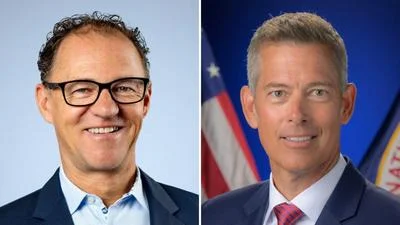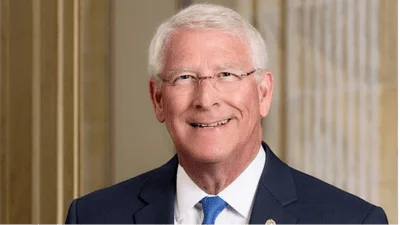WASHINGTON - Congresswoman Betty McCollum (D-MN), Chair of the Interior, Environment, and Related Agencies Appropriations Subcommittee, delivered the following remarks at the Subcommittee's markup of its fiscal year 2021 bill:
Welcome to the fiscal year 2021 Interior and Environment markup.
For fiscal year 2021, the Subcommittee is recommending a total of $37.8 billion in discretionary funding. This is an increase of $771 million over last year’s enacted level. In addition to our regular appropriations, the bill includes $2.4 billion in fire cap adjusted funds for suppression operations. This brings the total funding for Wildland Fire Management to $5.7 billion.
The bill also includes an additional $15 billion in emergency-designated infrastructure investments for the Bureau of Indian Education, Indian Health Service, and the Environmental Protection Agency. These investments will increase access to quality healthcare and education, and help clean up contaminated lands, polluted water, and unhealthy air.
Additionally, as a result of the impending enactment of the Great American Outdoors Act, in fiscal year 2021, the Land and Water Conservation Fund will be fully funded at $900 million, the first time this has happened in over 40 years. This bill allocates the distribution of those funds and once this Committee receives the projects lists from the agencies, which are required by the Act, we will reflect final decisions in the enacted bill.
Last year, House Democrats secured significant new investments in environmental protection and land conservation. For fiscal year 2021, this bill builds upon those successes to advance the priorities of American families - ensuring we have clean air and water to protect our children’s health, protecting our most special places and endangered species, and taking meaningful actions to address climate change.
This bill is a rejection of the dangerous policies and funding cuts proposed by the Trump Administration. Instead, this bill moves us forward, by investing our resources in ways that keep our communities safe and healthy.
This bill invests in the protection and preservation of our landscapes and biodiversity. Specifically, we provide funding to advance science and ensure it remains the foundation of management decisions. Including an increase of $22 million over the enacted level for the U.S. Geological Survey.
This bill also provides an $8 million increase for the Fish and Wildlife Service International Affairs program and the Multinational Species Conservation Fund to save iconic species and protect them from wildlife trafficking and poaching.
The Forest Service is increased by $134 million to improve forest health, protect critical watersheds, address the impact of pests like the emerald ash borer, reduce the risk of wildland fire, combat illegal logging and protect our country from invasive species and zoonotic diseases.
The Environmental Protection Agency is increased by $318 million to help ensure that all Americans have equal access to clean air and water. This includes:
* A $34 million increase for Clean Air programs,
* $68 million for place-based water protections and regulations, including $45 million for Geographic Programs
* $13 million in additional funds to support rules that regulate PFAS chemicals, and
* $45 million in additional funds to help enforce our nation’s environmental laws.
EPA’s emergency infrastructure investments include:
* $1.35 billion for Superfund and brownfields cleanups
* $10.2 billion for the Clean Water and Drinking Water State Revolving Funds
* $950 million for targeted water infrastructure grants, and
* $450 million for the DERA program.
The President's budget included the elimination of the National Endowments for the Arts and the Humanities. Instead this bill provides an increase of $7.75 million to each endowment.
The COVID-19 pandemic is affecting our entire Nation, but there are pronounced racial disparities in its impact, with African Americans, Hispanic/Latinos, and Native Americans experiencing higher rates of infection and death.
Tribal communities are disproportionately feeling the effects of the pandemic. While our work to provide COVID-19 relief is ongoing, this bill continues to invest in the health, safety and welfare of Indian Country. Specifically, the bill provides $3.5 billion for the Bureau of Indian Affairs, Bureau of Indian Education, and the Office of the Special Trustee and $6.5 billion to the Indian Health Service.
The federal government has struggled to provide adequate funding for Tribal communities to educate their children in normal circumstances. This bill provides a $28 million increase to operate Indian schools, including investing in Tribal education departments to strengthen Tribal sovereignty. It also includes $500 million in emergency funding for school construction.
The bill begins to address anticipated long-term effects of the COVID-19 crisis in Indian Country. An additional $35 million is included to provide mental health and alcohol and substance abuse treatment to combat the negative impacts the pandemic is having on Tribal cultural practices. It also includes $1.5 billion in emergency funding to address health care infrastructure needs. As a nation, we have more work to do to ensure that we provide for the health, safety, and education of our Native American brothers and sisters. But this bill is another step in the right direction towards fully upholding the federal government’s trust and treaty obligations.
This bill also contains $102 million to address the severe problem of wild horse and burro overpopulation on our western rangelands. I want to thank our western colleagues for keeping the committee focused on this work. The Ranking Member and I are committed to addressing this problem, and we continue to have productive discussions with the administration as we look towards funding and implementing the proposed plan.
I do want to note that this bill contains policy provisions that protect our environment now and for future generations. Given the circumstances we find ourselves in with COVID-19, and the fact that many of these provisions passed with overwhelming support on the House floor last year, I have decided to include them in this bill.
These include:
* A provision to block oil and gas drilling off the coasts of states like Florida, California, and Maine.
* Provisions to protect the pristine wilderness of Alaska’s National Wildlife Refuge and the Tongass National Forest.
* A provision to end the issuance of permits to import sport-hunted trophies of elephants and lions from Tanzania, Zimbabwe, or Zambia.
* And, also a provision to prohibit a mine plan within the Rainy River Watershed of the Superior National Forest.
Finally, each of us here is aware that COVID-19 is ravaging the country; taking a huge physical, emotional, and economic toll on society. The effects of this pandemic will touch the lives of all Americans for years to come.
The federal government has a solemn duty to provide relief and aid to help America recover. The absence of presidential leadership only increases the need for the Congress to act deliberately and with dispatch. So, I hope that Senate Republicans will work with us to provide aid to our fellow Americans swiftly.
Before I conclude, I do want to address one last issue. Confederate flags and memorials have long been symbols of oppression and discrimination in our nation. In my first year as Ranking Member of the subcommittee, this bill was brought down by the Confederate flag issue. Now, five years later as Chair, I continue to be saddened and outraged that we as a nation have not made more progress to address racism and end the cruel legacy of the Confederacy. I am committed to doing everything I can to help our country confront and heal its legacy of racial injustice. That is why I am including bill language requiring the National Park Service to remove all Confederate commemorative works.
Furthermore, the bill includes language authored by Representative Jeffries that prohibits funds for the purchase or display of the Confederate flag in national parks with the exception of specific circumstances where flags provide historical context. I thank Mr. Jeffries for his contributions. He has been a tremendous leader on these issues.
This is not about trying to erase our history or denigrate anyone’s heritage. It’s about whether we are willing to do the work needed to confront the truth of our history and work to right past wrongs. In order to do that, it means ending the use of Confederate symbols which continue to be used today to intimidate and terrorize millions of our fellow Americans.
I hope that every member of this subcommittee, and of this body, will join me. I now turn to my colleague, the ranking member from Ohio, for any opening remarks he would like to make. Mr. Joyce.
Source: U.S. Department of HCA








